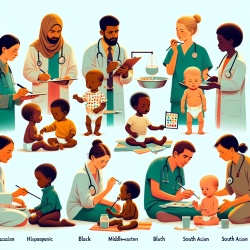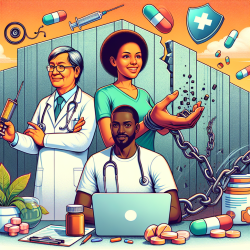In the realm of clinical practice, where the work we do significantly impacts the lives of others, the importance of continual personal and professional development cannot be overstated. Drawing from Christine Sloan's insightful research in "Helping Others: A Personal View," we explore how embracing a deeply personal approach to ethics and client relationships can enrich our clinical practice and foster meaningful growth.
At the heart of ethical clinical practice lies the ability to relate to others in a manner that is fair, open, and respectful. While adherence to professional guidelines and standards is crucial, Sloan's research suggests that the essence of ethics in clinical practice often comes down to the moment-by-moment decisions we make. These decisions not only affect our clients but also influence our growth as professionals and individuals.
Here are several key takeaways from Sloan's research that can help practitioners enhance their skills and approach to therapy:
- Generosity: Begin each clinical relationship with an attitude of generosity. This means being open to your client's experiences in a nonjudgmental way and being present for them without the barrier of perceived expertise. This openness fosters a safe environment for clients to express themselves, facilitating a mutual, respectful working relationship.
- Discipline: Practice discipline, not as an external set of rules, but as a natural extension of generosity. Discipline involves acting in accord with what is needed, putting the client's needs first, and maintaining balance in your professional conduct.
- Patience: Cultivate patience, understanding that change, recovery, or rehabilitation takes time. Patience involves managing your expectations and remaining flexible and understanding throughout the therapeutic process.
- Exertion: Exertion, or joyous energy, is essential for preventing burnout and maintaining enthusiasm in your work. Find delight in your practice and stay open to experimenting and resynthesizing your knowledge.
- Meditation: Incorporate mindfulness and meditation into your daily life to enhance presence and attentiveness in your clinical work. Being fully present with clients allows for clearer understanding and more effective therapy.
- Knowledge: Embrace a continuous learning process, seeking knowledge not just from professional sources but also from life experiences. This holistic approach to learning enriches your practice with insight and wisdom.
Implementing these principles requires reflection and commitment but offers significant rewards. By integrating generosity, discipline, patience, exertion, meditation, and knowledge into our practice, we can achieve a more compassionate, effective, and fulfilling approach to therapy.
Furthermore, Sloan highlights the importance of humor in clinical work. Humor keeps our work in perspective, allowing us to navigate the ups and downs of clinical practice with grace and resilience. It reminds us of the joy and richness that our work brings, not only to our clients but to ourselves as well.
In conclusion, the journey of helping others is as much about personal growth as it is about professional development. By reflecting on and applying the insights from Sloan's research, we can enhance our ability to connect with and support our clients effectively. It is through this deep, ethical engagement with our work that we find true fulfillment and make a lasting impact on the lives of those we serve.
To read the original research paper, please follow this link: Helping Others: A Personal View.










